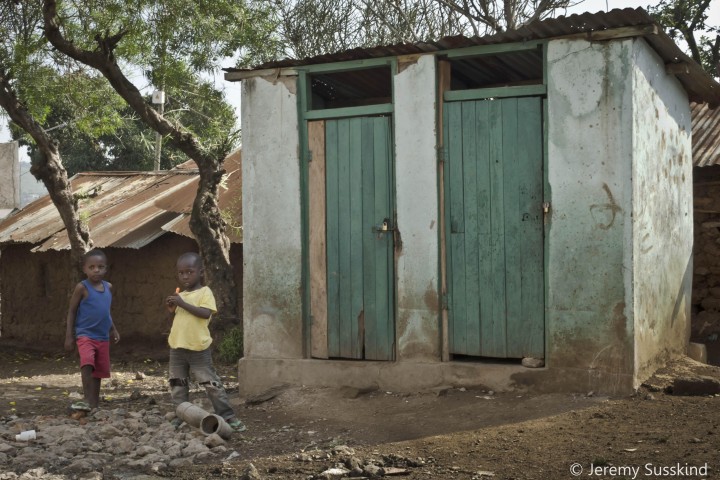Safe Start Trial - Childhood hygiene intervention on enteric infections and growth faltering in low-income settlements of Kisumu, Kenya
2015 - 2018 • SHARE Consortium
Purpose
Designing and testing a novel child hygiene intervention in collaboration with community members, the health extension system and local government
Activities
Led by the Great Lakes University, Kisumu, this study will design, implement and evaluate the impact of a novel early childhood hygiene intervention targeting caregivers of children at three months of age on enteric infections and growth faltering in low-income settlements of Kisumu, Kenya.
Images

Image: Children in Kisumu, Kenya © Jeremy Susskind
Countries of activity
Location of main activity
Objectives
Aim: To address this challenge by designing and testing a novel child hygiene intervention in collaboration with community members, the health extension system and local government. The intervention will target children’s caregivers with the aim of changing key hygiene behaviours.
Objectives:
• Design and implement a novel child hygiene intervention targeting caregivers of children at three months of age, and delivered by Community Health Volunteers;
• Measure the effect of the intervention on observed and reported household behaviours;
• Measure the effect of the intervention on faecal contamination in the child environment (food, drinking water and fomites) and on the presence of flies;
• Evaluate the effect of the intervention on specific enteric infections and growth faltering among children.
Contact information
Jane Mumma
Login to see the e-mail-adress of the contact person.
Filter tags
Behaviour change Health and hygiene Specific to one or several countries Sub-Saharan Africa UK government University, education or research institution WASH and nutrition
Sanitation and Hygiene Applied Research for Equity (SHARE) consortium
London
United Kingdom
Uploaded by:
Sophie Durrans (sophiedurrans)
















